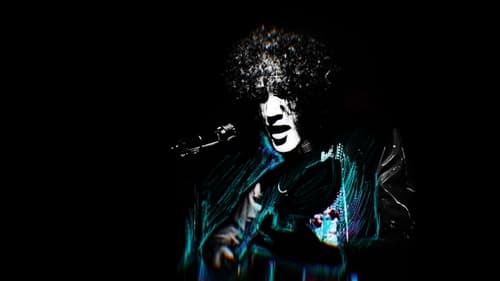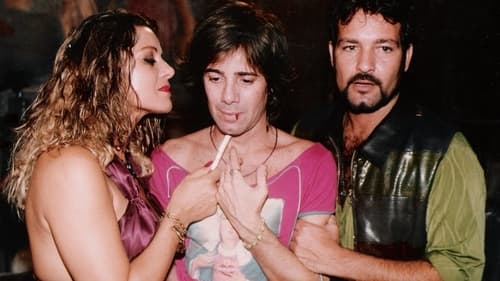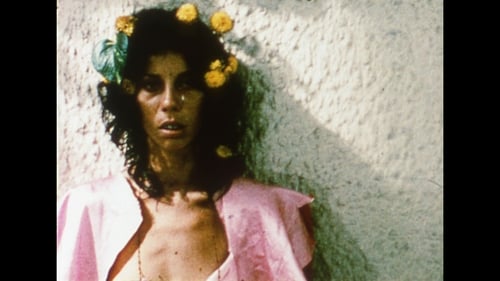
Self (archive footage)
A totally Cardoso-appropriated footage delirium, done as a tribute to US independent cinema's original rebel. In the end, Corman himself blesses Cardoso by saying: "You blended horror, sex and humour very well. And particularly the editing is very good because the film never lagged or slowed down". Which film? This one!

Narrator (archive footage)
Hélio Oiticica was one of the artists that most united reflection with artistic creation. His ideas and propositions, expressed not only in texts but also in statements and interviews, revolutionized art and culture, transforming him into one of the most important Brazilian artists of the 20th century. Foregoing voiceover narration and expert analyses, the film allows Oiticica himself to narrate his life and expound upon his art in his own words, and in extremely rare archival audio and visual material.

Self
Set against the turbulent atmosphere of the 1960s, Tropicália is a feature length documentary exploring the Brazilian artistic movement known as Tropicália, and the struggle its artists endured to protect their right to freely express revolutionary thought against the traditional Brazilian music of that time.

Himself (archive footage)
A short documentary on Belair, an independent Brazilian film company that lasted for only five months in 1970.

Art Direction
A collage of newsreels, trailers, clips and other visionary and unseen fragments of sight and sound regarding the late plastic artist Helio Oititica.

Self
A collage of newsreels, trailers, clips and other visionary and unseen fragments of sight and sound regarding the late plastic artist Helio Oititica.

In Memory Of
Neusa Suely, a prostitute, is accused by her pimp Vado of stealing his money. To get rid of the accusations, she blames her neighbour, Veludo. The three characters then start to live a small tragedy set in the underground Rio de Janeiro scene.

A late-1960s interview with Brazilian filmmaker Glauber Rocha, mixed in avant-garde style with scenes from his films and clips from fellow filmmaker José Mojica Marins and visual artist Hélio Oiticica.

Self
An experimental film on Brazilian avant-garde artist Helio Oiticica and his works, especially the Parangolés.

Himself
In 1973, exiles from Brazil during the military dictatorship, artist Hélio Oiticica and filmmaker Neville D’Almeida lock themselves in an apartment in Manhattan and fantasize a series of iconic sensory installations called quasi-cinema - experience blocks in Cosmococas. The work features slide projections on the walls of the rooms, showing drawing sessions carried out by the artists, using cocaine for doodling and a pocket knife as a brush.

Director
In 1973, exiles from Brazil during the military dictatorship, artist Hélio Oiticica and filmmaker Neville D’Almeida lock themselves in an apartment in Manhattan and fantasize a series of iconic sensory installations called quasi-cinema - experience blocks in Cosmococas. The work features slide projections on the walls of the rooms, showing drawing sessions carried out by the artists, using cocaine for doodling and a pocket knife as a brush.

Himself
Experimental short film, shot in Super 8.

Director
Experimental short film, shot in Super 8.

Director
In Manhattan and Wall Street's majestic, neoclassical architecture, characters try their luck, ambiguously posted between the mundane and transcendence.

Fragments of a film never finished, shot in New York in 1972, including scenes in the home of Hélio Oiticica. Last film made in exile by Bressane, it mimics the experimental concept of "quasi-cinema" by Hélio Oiticica. It consists of a fragmentary experience of freedom, in super-8 and 16mm, in a code out of time, out of the square, while recreating (with different cameras) the wild and sensitive look that Oiticica dedicated to cinema.

This film shows people with constant psychological and social conflicts: the violence among outlaws, conflicts between man and woman, police and society.

Writer
The quasi-fictional story of transgender sex workers living in Rio de Janeiro's swampy red light district, who are joined by a group of hippies and a runaway stockbroker, "Mangue-Bangue" is the paradigmatic expression of the post-1968 spirit of desbunde, the Brazilian slang catchword for "sex, drugs, and rock 'n' roll".

Apocalipopótese documents a public art happening organized by Rogério Duarte with Hélio Oiticica and Lygia Pape. Duarte coined the event’s title by fusing the words apotheosis, hypothesis, and apocalypse, in order to describe a series of artistic actions that distanced themselves from artistic institutions to approach the streets as the main stage. Apocalipopótese shows a search for the margins as creative methodology.

Himself
A film regarding the works, the studios and the performances of Abrahan Palatnik, Antonio Dias, Carlos Vergara, Glauco Rodrigues, Helio Oiticica, Ligia Pape, Lygia Clark, Pedro Escosteguy, Rubens Gerchman, Tomoshige Kusuno, Wesley Duke Lee, and the São Paulo 9th Bienal of Art.















